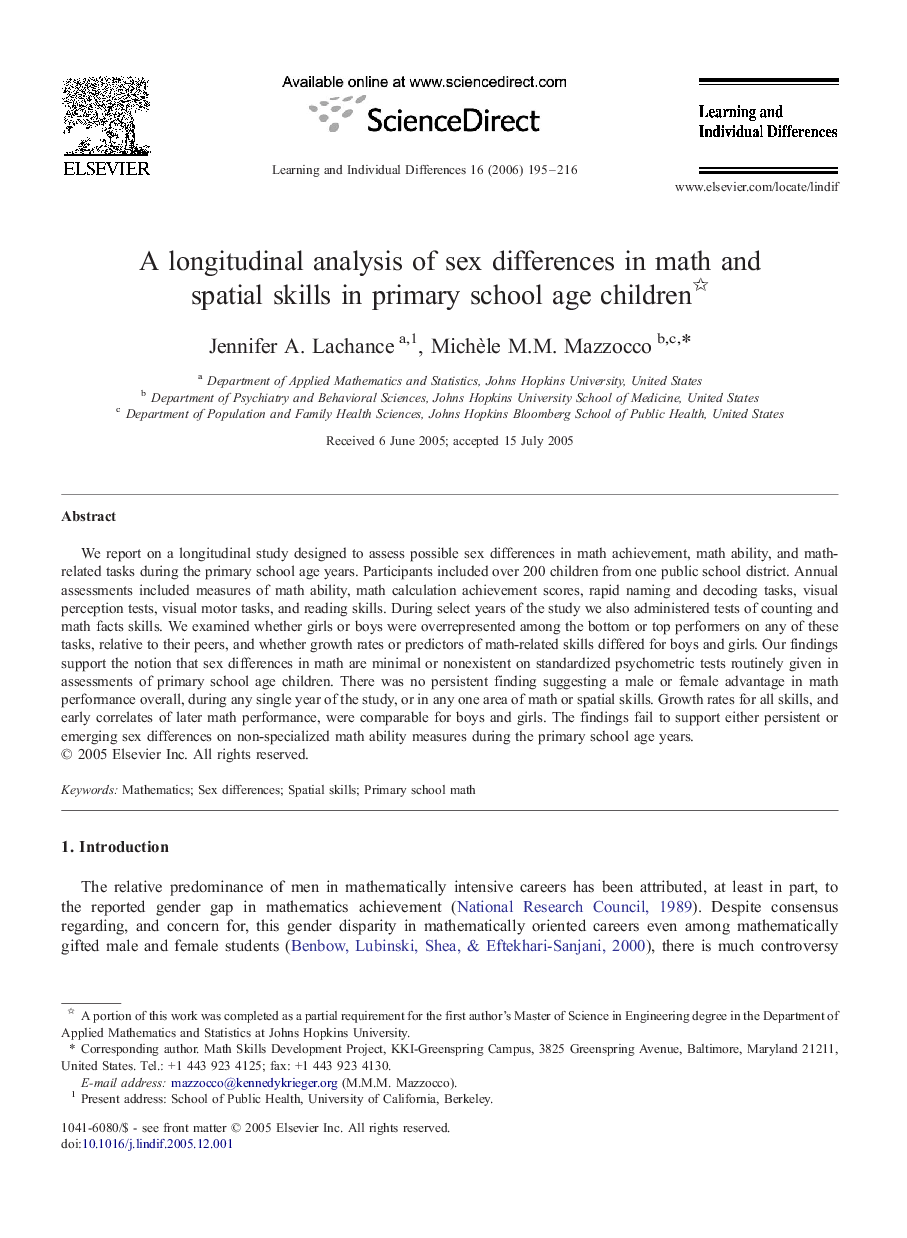| Article ID | Journal | Published Year | Pages | File Type |
|---|---|---|---|---|
| 365324 | Learning and Individual Differences | 2006 | 22 Pages |
We report on a longitudinal study designed to assess possible sex differences in math achievement, math ability, and math-related tasks during the primary school age years. Participants included over 200 children from one public school district. Annual assessments included measures of math ability, math calculation achievement scores, rapid naming and decoding tasks, visual perception tests, visual motor tasks, and reading skills. During select years of the study we also administered tests of counting and math facts skills. We examined whether girls or boys were overrepresented among the bottom or top performers on any of these tasks, relative to their peers, and whether growth rates or predictors of math-related skills differed for boys and girls. Our findings support the notion that sex differences in math are minimal or nonexistent on standardized psychometric tests routinely given in assessments of primary school age children. There was no persistent finding suggesting a male or female advantage in math performance overall, during any single year of the study, or in any one area of math or spatial skills. Growth rates for all skills, and early correlates of later math performance, were comparable for boys and girls. The findings fail to support either persistent or emerging sex differences on non-specialized math ability measures during the primary school age years.
